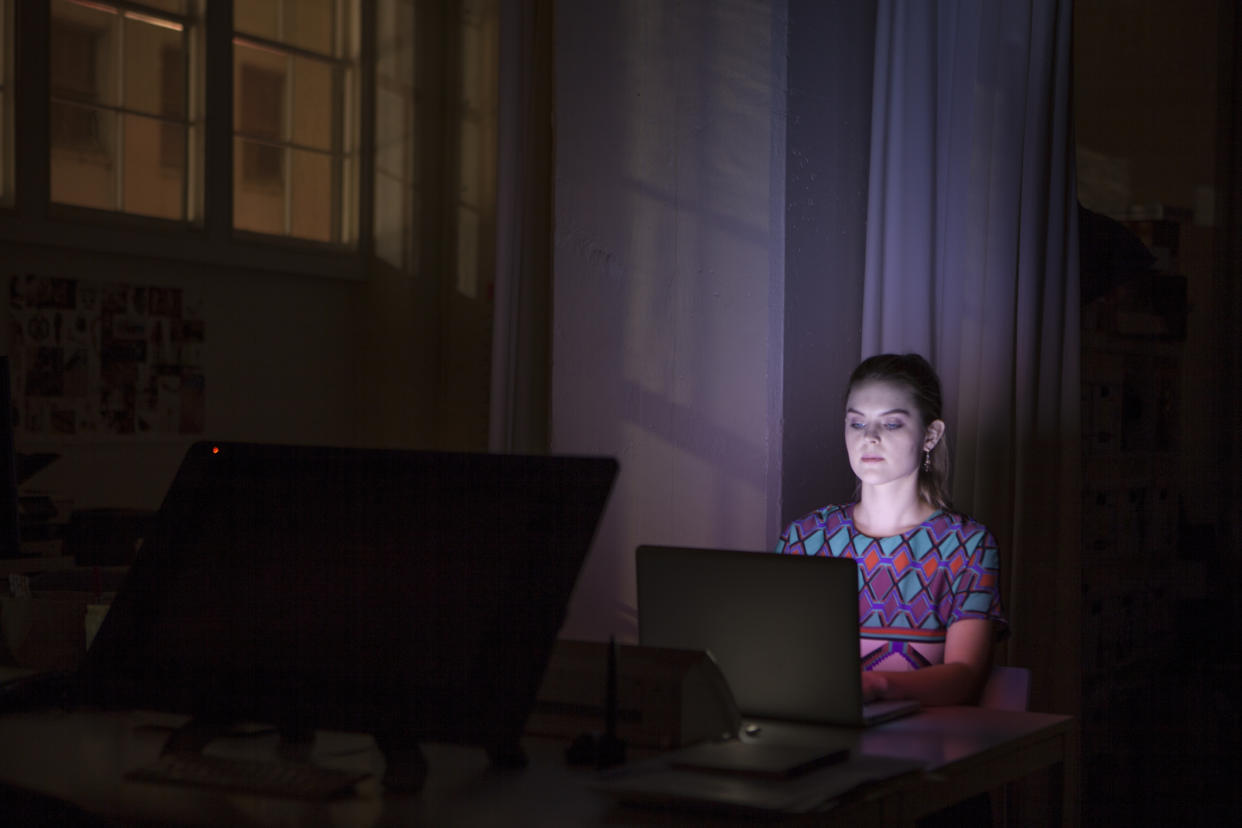How some anxious minds are getting anonymous peer support online

Since its release about a year ago, mobile application Huddle has become a haven for thousands dealing with difficult issues in their personal lives, including anxiety, depression and coming out.
The app has hundreds of user-created groups where some of the most intimate struggles are shared anonymously. But what particularly sets Huddle apart is its video filters that obscure users’ identities to make it easier for them to share what’s on their mind.
“We wanted to figure out with our tech, how we could create a place where people could come and feel comfortable and feeling like they’re not giving away too much but still has that human element,” Huddle co-founder Dan Blackman says of the feature.
“Even if they’re hiding behind pixelated video, you still get to feel empathy for them, and you still get to feel those raw human emotions that you’d feel if you were hearing them in real life.”
ALSO SEE: How to deal with anxiety in the workplace
For those dealing with anxiety in particular, Blackman says that the app is a lily pad towards getting help.
“I think that this is a step in the right direction of the types of communication that I encourage all people to partake in,” he adds. “I think everyone deals with a form of anxiety, and I think we just need to have more open communication and more conversations about it.”
Blackman says the inspiration for Huddle came in part from his father who was suffering from alcoholism. Living in a town of 10,000 people, he says his father was afraid to join an AA group or even tell his doctor.
“It would have been tough for him to open up with a problem that he’s dealing with such if a close-knit community,” he says. “He was always trying to find help for it, but he was afraid that it would ruin his career or his reputation if he was to go and seek some kind of therapy or go to an AA group.”
Blackman says one of the biggest hurdles in creating the app was trying to make people feel as comfortable as possible talking about some of their deepest and darkest struggles. That in turn inspired Huddle’s signature feature of filtering videos.
Users have the option to share their video without a filter, and the result could resemble a short vlog or a podcast. But Blackman says that despite those platforms, Huddle still offers a better experience.
“The anxiety that comes along with building an audience, the anxiety that goes along with editing your content is so much of a burden on anyone that wants to try to get their voice out there,” he says.
“The ease of coming into to Huddle and being able to just make a video very quickly in a group that’s focused on anxiety is a much easier way to get a line of communication started quicker”
Dr. Martin Antony, professor of psychology at Ryerson University and author of the Anti-Anxiety Workbook says having social supports, like those that could possibly be developed through platforms like Huddle, are generally helpful, but there are still times they could be problematic.
ALSO SEE: Medication vs. natural treatment for anxiety: What’s better?
“There’s a lot of advantages of having that social support. Where it’s a problem is potentially if people are reinforcing behaviours that contribute to the problem,” he says. “One of the things I worry about sometimes with anxiety disorders is whether people may support maladaptive anxiety-related behaviours like avoidance.”
While nearly anyone can share advice on Huddle, the platform still takes several steps to ensure users are safe, including employing a large group of moderators who look for those in crisis. Users can also flag to the team if someone appears to need additional supports.
Huddle has already received a fair amount of attention in its relatively short life. It was featured on Apple’s App Store and on sites like Business Insider and TechCrunch. But Blackman says it has really spread by word of mouth with young people particularly taking to the platform.
“The original idea of it being a place for addiction and depression has really transformed to more of a place where young people are flocking to talk about struggles that they’re dealing with, and hopefully find some guidance from other people that have been there,” he says.
“There should be outlets for people to talk about these things. There should be outlets for people to ask questions. There should be outlets for people to be vulnerable.”
During the month of October, Yahoo Canada is delving into anxiety and why it’s so prevalent among Canadians. Read more content from our multi-part series here.
Let us know what you think by commenting below and tweeting @YahooStyleCA and follow us on Twitter and Instagram.
Abacus Data, a market research firm based in Ottawa, conducted a survey for Yahoo Canada to test public attitudes towards anxiety as a medical condition, including social stigmas and cultural impacts. The study was an online survey of 1,500 Canadians residents, age 18 and over, who responded between Aug. 21 to Sept. 2, 2019. A random sample of panelists were invited to complete the survey from a set of partner panels based on the Lucid exchange platform. The margin of error for a comparable probability-based random sample of the same size is +/- 2.53%, 19 times out of 20. The data was weighted according to census data to ensure the sample matched Canada’s population according to age, gender, educational attainment, and region.



